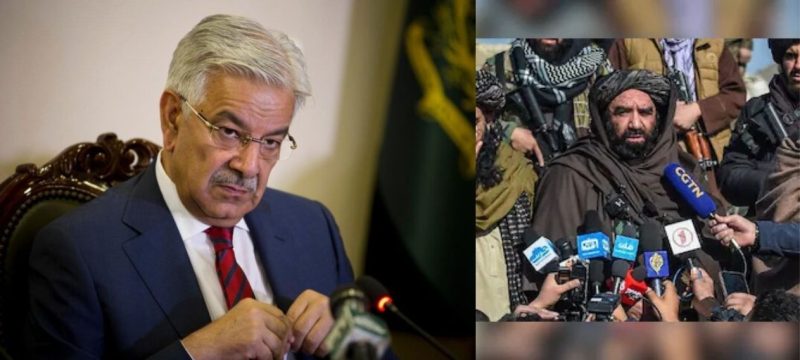Pakistan’s Defence Minister Khawaja Asif has issued a strong statement against the Taliban, saying Pakistan no longer has any positive expectations from Kabul. His remarks come at a time when tensions between the two sides are rising quickly after a series of cross-border attacks.
The minister spoke shortly after Taliban spokesperson Zabiullah Mujahid accused Pakistan of launching overnight air strikes inside Afghanistan. Mujahid claimed that Pakistan carried out “bombing” in Khost and conducted strikes in Kunar and Paktika. His statement triggered fresh debate across the region, adding to the already tense situation.
During a recent media appearance, Khawaja Asif was asked whether Pakistan was denying reports of civilian casualties from the alleged strikes. He firmly responded that Pakistan retaliates only when provoked. He added that civilians are never targeted, saying Pakistan’s forces follow discipline and a strict code of conduct.
He described the Afghan Taliban as a “ragtag group” with no proper code or tradition. He questioned their version of Shariah and said it does not match the teachings of Prophet Muhammad (PBUH). He stressed that Pakistan is now completely writing them off because there is no hope for improvement in their behaviour.
The defence minister also said that Turkiye, Iran, and Qatar are trying to calm the situation. He noted that peace would benefit the whole region, including Afghanistan. However, he added that these diplomatic efforts are failing due to what he called the ill intentions of the Afghan Taliban.
Khawaja Asif recalled that Pakistan made sincere efforts to maintain friendly relations. He said he personally welcomed the Taliban after their return to power and visited Kabul several times to strengthen ties.
In other news read more about Pakistan, Iran Vow Deeper Ties as DPM Dar Meets Iranian Security Chief
He warned that the Taliban’s current actions are harming Afghanistan more than anyone else. He predicted that the crisis could soon draw regional countries into the conflict. He further cautioned that continued isolation may push Afghanistan toward complete collapse.









